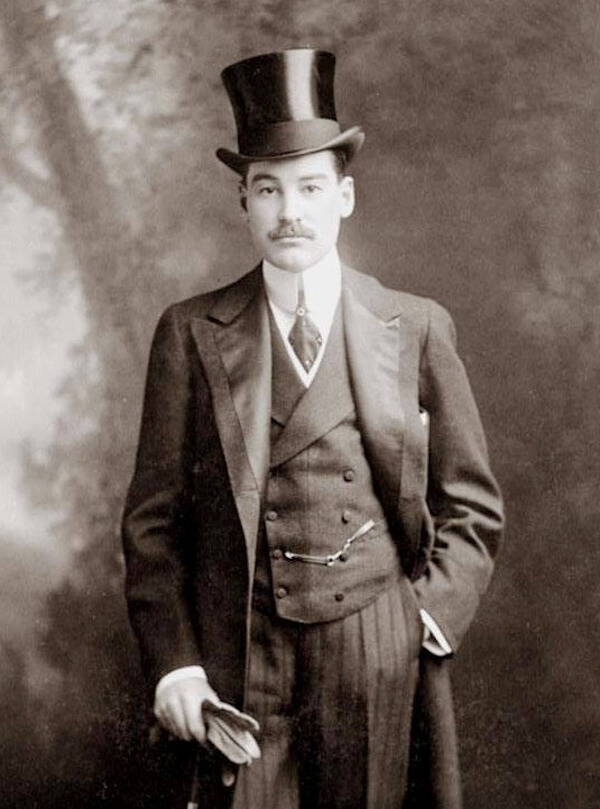Alfred Vanderbilt’s Final Moments Aboard The ‘Lusitania’

Library of CongressAlfred Vanderbilt died while rescuing passengers from the RMS Lusitania.
Alfred Vanderbilt was born into wealth that few people have ever experienced. His great-grandfather, Cornelius Vanderbilt, dropped out of school at age 11 and made a fortune by investing in the shipping and railroad industries. Cornelius left $150 billion to his son — who doubled that sum and left it to Alfred.
Born on Oct. 20, 1877, in New York City, Alfred Gwynne Vanderbilt never knew economic hardship. Raised with an inheritance of hundreds of billions of dollars, he spent his time investing in real estate and horses — when he wasn’t attending extravagant parties or womanizing his way across the landscape of high society.
On May 1, 1915, however, the married 37-year-old father of three boarded the RMS Lusitania. At the height of World War I, passenger ships were thought to be internationally excluded from any attacks.
But on May 7, the Lusitania was torpedoed off the coast of County Cork, Ireland, and rapidly began to sink. It became clear to all aboard that they would soon die of hypothermia or drowning. While Vanderbilt was a first-class passenger and had easy access to escape, according to History Collection, he gave away his lifejacket and spent his final hours placing children into lifeboats.
Vanderbilt was still busy ensuring as many children as humanly possible had seats on lifeboats when the Lusitania sank — and took hundreds of souls with it. As an esteemed elite with no imaginable hurdles that his money couldn’t possibly leap, that act made him one of the most admirable heroes in history.
Ultimately, his body was never recovered. While his lineage remained steadfast and continued to amass untold fortunes, Vanderbilt himself was described in The New York Times by one reporter as having shown “gallantry which no words of mine can describe.”





